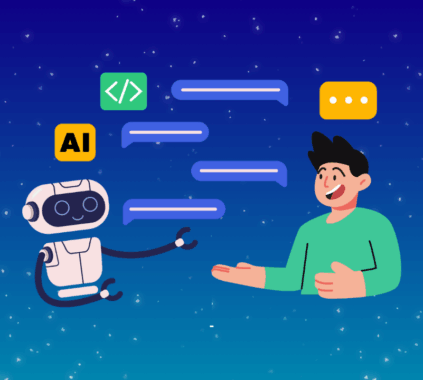Healthcare systems worldwide are grappling with challenges such as physician shortages, escalating costs, and increasing patient demands.
Patients often face long wait times, administrative bottlenecks, and limited access to timely medical advice, leading to dissatisfaction and potential health risks.
Enter AI Virtual Assistants—intelligent digital tools revolutionizing healthcare by enhancing patient engagement, streamlining operations, and providing 24/7 support.
Understanding AI Virtual Assistants in Healthcare
AI Virtual Assistants in healthcare are sophisticated software applications powered by artificial intelligence, natural language processing (NLP), and machine learning. They interact with patients and healthcare providers through voice or text, offering services like appointment scheduling, symptom checking, and health information dissemination.
Unlike traditional chatbots, these assistants comprehend context, learn from interactions, and provide personalized responses, making them integral to modern digital health strategies.
Key Benefits of AI Virtual Assistants in Healthcare
1. 24/7 Patient Support and Engagement
AI Virtual Assistants offer round-the-clock assistance, answering patient queries, providing medication reminders, and facilitating health education. This continuous availability enhances patient satisfaction and adherence to treatment plans.
2. Reduction in Administrative Workload
By automating routine tasks like appointment scheduling, patient intake, and data entry, AI assistants alleviate the administrative burden on healthcare staff, allowing them to focus on direct patient care.
3. Enhanced Diagnostic Accuracy
AI Virtual Assistants can analyze patient symptoms and medical history to provide preliminary diagnoses, aiding clinicians in decision-making and potentially reducing diagnostic errors.
4. Improved Accessibility
These assistants bridge the gap in healthcare accessibility, especially in remote or underserved areas, by providing immediate medical guidance and reducing the need for in-person visits.
Challenges and Ethical Considerations
Data Privacy and Security
Ensuring the confidentiality and security of patient data is paramount. AI Virtual Assistants must comply with regulations like HIPAA and GDPR to protect sensitive health information.
Accuracy and Reliability
While AI can enhance diagnostic processes, reliance on AI-generated information must be balanced with professional medical judgment to prevent misdiagnoses.
Accessibility and Digital Literacy
The effectiveness of AI assistants depends on user access to technology and digital literacy. Efforts must be made to ensure equitable access across diverse populations.
The Future Landscape of AI Virtual Assistants in Healthcare
The integration of AI Virtual Assistants with wearable devices and IoT technologies is poised to revolutionize personalized medicine. These assistants will not only monitor real-time health data but also provide predictive analytics for proactive healthcare management.
How to Build an AI Virtual Assistant for Healthcare
1. Define the Purpose and Scope
Identify the specific needs your AI assistant will address—be it appointment scheduling, symptom checking, or patient education. Understanding the target audience and their requirements is crucial.
2. Design User-Centric Interfaces
Develop intuitive interfaces that cater to users’ preferences, including voice and text interactions. Ensure the design is accessible, accommodating users with varying levels of digital literacy.
3. Select Appropriate Technologies and Platforms
Choose AI models and platforms that align with your assistant’s objectives. Consider leveraging cloud-based services for scalability and integrating with existing electronic health record (EHR) systems for seamless data exchange.
4. Ensure Data Security and Compliance
Implement robust security measures, including encryption and secure authentication protocols. Regularly update the system to comply with evolving healthcare regulations and standards.
5. Train and Test the AI Assistant
Utilize diverse datasets to train the AI, ensuring it can handle a wide range of scenarios. Conduct thorough testing to evaluate performance, accuracy, and user satisfaction.
6. Deploy and Monitor Performance
Roll out the AI assistant in phases, gathering user feedback to make iterative improvements. Monitor key performance indicators to assess effectiveness and identify areas for enhancement.
7. Plan for Scaling and Future Enhancements
As the assistant gains traction, plan for scaling its capabilities, such as incorporating multilingual support or expanding to additional healthcare services. Stay abreast of technological advancements to continuously evolve the assistant’s functionalities.
Frequently Asked Questions (FAQs)
Q1: What are AI Virtual Assistants in healthcare?
AI Virtual Assistants are intelligent software applications that interact with patients and healthcare providers to facilitate tasks like scheduling, information dissemination, and preliminary diagnostics.
Q2: How do AI Virtual Assistants improve patient care?
They provide immediate responses to patient inquiries, reduce administrative burdens on healthcare staff, and enhance the overall efficiency of healthcare delivery.
Q3: Are AI Virtual Assistants secure and compliant with healthcare regulations?
Yes, when properly implemented, they adhere to regulations like HIPAA and GDPR, ensuring the confidentiality and security of patient data.
Q4: Can AI Virtual Assistants replace human healthcare providers?
No, they are designed to augment healthcare services by handling routine tasks, allowing human providers to focus on complex medical care.
Q5: What is the cost of developing an AI Virtual Assistant for healthcare?
Costs vary based on complexity and features but can range from tens to hundreds of thousands of dollars.
AI Virtual Assistants are transforming healthcare by enhancing patient engagement, streamlining operations, and providing accessible medical support. As technology advances, these assistants will play an increasingly vital role in delivering efficient, personalized, and equitable healthcare services.
Ready to revolutionize healthcare with AI? Start building your own AI Virtual Assistant today—enhance patient care, boost efficiency, and lead the future of medicine!











